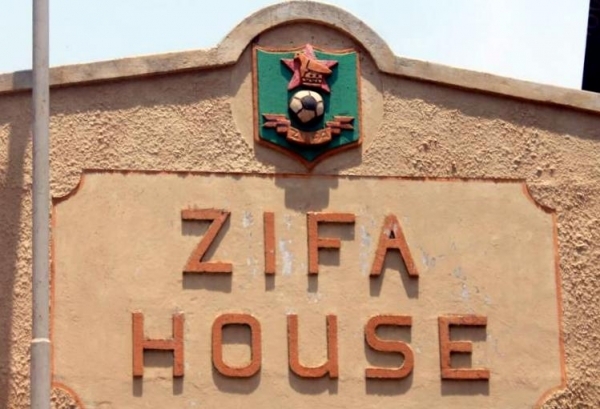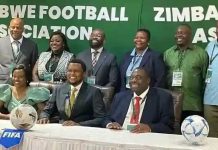THERE was drama in Parliament this Thursday after Zimbabwe Football Association (ZIFA) did not show up, as it was set to appear before the Parliamentary Portfolio Committee on Youth and Recreation to give oral evidence on the state of sporting facilities and the recent ban by the Confederation of African Football (CAF) to use local stadia.
ZIFA ‘s failure to show did not go down well with the parliamentary committee members a they highlighted there was no point in proceeding with the evidence presentation session when the major culprit is not present. The parliamentary committee members were disappointed and puzzled as to why the country’s football body responsible for organising the national competitions would pull off a no show at a time when the country needs to be pulling in one direction to map a way forward to avoid the embarrassment of playing home matches away.
To bring order to the house, Mathias Tongofa, the chairperson of the Parliamentary Portfolio Committee on Youth and Recreation adjourned the meeting.
After adjourning for about 15 minutes, the parliamentary committee proceeded with oral evidence presentation of stakeholders who were present.
Parliament had summoned all football stakeholders, government ministries for oral evidence presentation over the dilapidated sporting facilities in the country which have been banned from hosting international soccer matches.
The country’s main football facilities have been condemned from hosting Confederation of African Football (CAF) matches and the government, which owns the National Sports Stadium, is racing against time to spruce up the facility.
Barbourfields Stadium in Bulawayo was also condemned last month, and Bulawayo City Council, who owns it, is also battling to renovate it to meet the minimum Caf requirements so that it can host the upcoming Africa Cup of Nations (Afcon) qualifier against Algeria at the end of the month.
Mandava Stadium in Zvishavane, which has also hosted international matches before and home to league champions FC Platinum, was also condemned. Its owners are also working to improve the facility to meet the requirements.
Zimbabwe is set to play the African champions in a Group H qualifier on March 29, but the country risks the embarrassment of hosting the match outside its borders.
Several areas were flagged by a Caf inspection team that toured the facilities and work has already started on the two stadiums as government and the Bulawayo City Council are now working on a crash programme to rectify the anomalies in the hope that the ban imposed is lifted.
Things that need urgent attention to meet the minimum requirements include sprucing the playing surface to meet international standards, fixing the team benches, renovating the dressing rooms, putting doping control and first aid rooms, installation of floodlights that meet the Caf requirements, as well as setting up media facilities.
Government has already availed $13 million against a budget of $58 million to the Bulawayo City Council for remedial works at Barbourfields, while other football stakeholders have made donations in an attempt to avert the threat of the country hosting matches outside its borders.
Former Premier Soccer League fixtures secretary, Musa Gwasira donated 100 bags of cement and a refrigerator for the doping control room at Barbourfields, while Herentals Group of Colleges has pledged to upgrade the dressing rooms for teams and referees.
At the National Sports Stadium, work continued on the facility and this week groundsmen could be seen working on the playing surface which Caf demanded should be trimmed much lower.
The Caf inspection team is expected back in the country in a fortnight and Zimbabwe hopes that the team will be happy with the renovations that are taking place in the three stadiums.
However, Zifa has already put in place a plan for the Algeria match if the renovations do not meet the standards.
It will be the first time, in the history of the Warriors, that they have been forced to play a home AFCON qualifier on neutral soil although in 1969, this country was forced to host Australia in Maputo in a 1970 World Cup qualifier.






